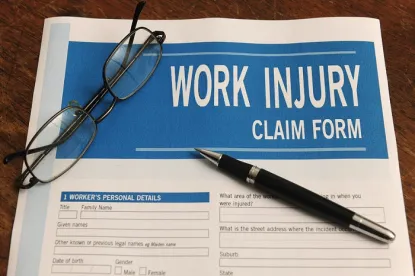Perhaps not, according to the First Circuit Court of Appeals. Not all retaliation is the same, the court reminds us in its December 14, 2016 decision in Chase v. U.S. Postal Service. Evidence that a supervisor retaliated because of an employee’s workers’ compensation claim does not itself prove the supervisor also retaliated because the employee took concurrent leave under the Family and Medical Leave Act (FMLA). Mocking an employee’s allegedly fake injury does not necessarily show hostility toward use of FMLA leave.
Robert Chase, a USPS employee, suffered a serious shoulder injury in a June 2010 car accident during his lunch break. When Chase applied for workers’ compensation benefits, the supervisor discouraged it. Chase also requested FMLA leave, but the supervisor claimed at trial that he was unaware of this fact and never received his copy of the designation notice approving the leave. The supervisor testified he thought Chase was not on FMLA leave because he believed (erroneously) that employees only use FMLA leave after exhausting paid leave, which Chase had not.
After exhausting FMLA in October 2010, Chase remained on medical leave until USPS terminated his employment in 2011 due to an arrest and criminal charges. In the meantime, the supervisor made no secret of his belief that Chase was faking his injury. In August 2010, he posted a job opening on the office bulletin board for an “injury compensation specialist” and mockingly announced, “there’s a job posted on the bulletin board for an injury compensation specialist since you’re the biggest fraud when it comes to injuries.” He followed up with additional public announcements in similar vein, such as: “Can I have the carrier on Route 92 [Chase] who is faking an injury come to the office, please?” And when Chase called him for help with his medical leave, the supervisor curtly told him to “go [expletive] yourself.”
Following his discharge, Chase sued, claiming FMLA retaliation. But the First Circuit affirmed the trial court’s verdict for USPS, finding that Chase failed to demonstrate that his supervisor had acted with retaliatory animus towards his FMLA leave. The supervisor insisted he was unaware Chase had taken FMLA leave, and all the evidence indicated that “it was the workers’ compensation leave – not the concurrent FMLA leave – which angered [the supervisor] and contributed to Chase’s termination.” Furthermore, while it was true that others at USPS did have knowledge of the FMLA absence, the court held that liability can be established only through proof that the decision maker – in this case, the supervisor – possessed such knowledge when the decision was made.
The decision highlights the evidentiary hurdles plaintiffs must surmount to prove FMLA retaliation. The claim requires proof of more than mere general hostility toward the employee. To show a causal link, a plaintiff must be able to point to a demonstrable nexus between FMLA leave and the challenged adverse action. However, while the outcome here was favorable to USPS, this case also underscores the importance of frequent management training. Absent the manager’s injudicious comments, USPS might have avoided a trial. And had Chase asserted a workers’ compensation retaliation claim against a private employer on these facts, the result may well have been very different.




 />i
/>i

